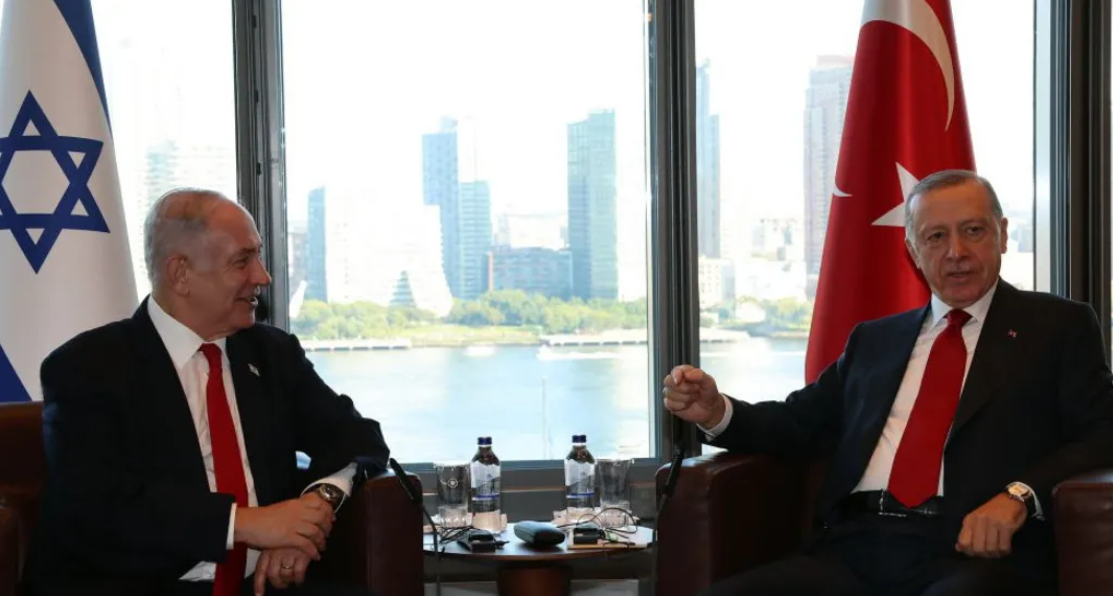Due to Israel’s offensive in Gaza, Turkey has halted all trade with the country, citing the “worsening humanitarian tragedy” there.
The actions will remain in place until Israel permits a “uninterrupted and sufficient flow” of aid into Gaza, according to the Turkish Trade Ministry.
Last year, the value of trade between the two nations was close to $7 billion (£5.6 billion).
Recep Tayyip Erdogan, the president of Turkey, was viewed as acting like a “dictator” by Israel’s foreign minister.
Mr. Erdogan was “disregarding the interests of the Turkish people and businessmen and ignoring international trade agreements,” according to Israel Katz on X.
He went on to say that he had given the foreign ministry instructions to look for additional ways to trade with Turkey, emphasizing both domestic production and imports from other nations.
Israel’s “uncompromising attitude” toward a ceasefire and the humanitarian situation in the southern Gaza city of Rafah were criticized by Turkish Trade Minister Omer Bolat, who stated, “Turkey has suspended all export and import with Israel until a permanent ceasefire is established and the aid into the Gaza is allowed without any interruption.”
The first nation with a majority of Muslims to recognize Israel was Turkey in 1949. However, things have gotten worse in recent years.
After ten pro-Palestinian Turkish activists were killed in skirmishes with Israeli commandos who boarded a Turkish-owned ship in an attempt to breach Israel’s naval blockade of the Gaza Strip, Turkey severed diplomatic ties with Israel in 2010.
After Israel began shooting Palestinians during protests on the Gaza-Israel border, both nations removed their senior diplomats from each other two years later. Relations were repaired in 2016.
Following the devastating Hamas attack on Israel on October 7, of last year, Mr. Erdogan has become more vocal in his criticism of Israel.
He has been calling Israeli Prime Minister Benjamin Netanyahu “the butcher of Gaza” and compared him to Adolf Hitler, Benito Mussolini, and Joseph Stalin. He has also criticized Netanyahu on other accounts.

According to Mr. Netanyahu, the leader of Turkey is the last person who can teach morals to Israel. He claimed in March that President Erdogan “masses Kurds in his own country, denies the Armenian genocide, and supports the mass murderers and rapists of Hamas.”
The Turkish leader has been under political pressure from both supporters and opponents to declare actions against Israel for some months.
At the end of March, the Islamist New Welfare party, which had advocated for harsh actions against Israel, garnered the backing of a large number of religious voters, handily defeating the ruling AK party in its worst loss in twenty years in local elections.
Turkey placed restrictions on 54 products, including iron and steel, jet fuel, pesticides, and construction equipment, that were being exported to Israel shortly after the vote.
On Thursday, the Ankara trade ministry announced that all imports and exports will now be subject to the action. Receiving 2.1% of Turkish exports in 2023, Israel ranked as Turkey’s thirteenth-largest export market. Of all the imports into Israel in the previous year, Turkey ranked sixth.
The situation in the Gaza Strip has drawn more and more criticism towards Israel. Famine in northern Gaza was predicted to strike by May, according to a UN-backed assessment released last month, which put 1.1 million people at risk of catastrophic hunger.
In response to repeated requests from international humanitarian organizations and pressure from its Western allies, Israel reopened the Erez Crossing into the northern Gaza Strip for aid convoys earlier this week.
Jordan, meanwhile, said that before arriving at the crossing, some of its relief trucks were ambushed by Israeli settlers.
A recent report supported by the UN provided concrete statistical proof that the humanitarian crisis in Gaza was beginning to resemble a man-made famine.
The BBC was informed by Volker Türk, the top UN human rights officer, that there was a “plausible” case that Israel was using famine as a weapon of war in Gaza.
Israel maintains that it is not restricting assistance supplies, and it holds the UN accountable for not getting supplies to Gaza’s underprivileged.
After Hamas attacked southern Israel on October 7, killing around 1,200 people and kidnapping 253, Israel began a military campaign in Gaza to eradicate the group.
Since then, more than 34,500 people have died in Gaza, as reported by the health ministry operated by Hamas in the region.
“The time is now” for an agreement to bring about a ceasefire in Gaza and release the remaining hostages detained there, US Secretary of State Antony Blinken informed Israel and Hamas on Wednesday. He said that Hamas ought to accept the arrangement that was on the table.
The mediators are waiting on Hamas to respond to the most recent proposal.
According to reports, in exchange for many more Palestinian captives, a 40-day ceasefire and the release of over 30 Israeli hostages are involved.











+ There are no comments
Add yours